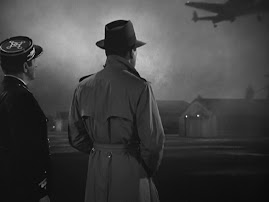UNIVERSAL TORAH: TOLDOS
By Rabbi Avraham Greenbaum
Torah Reading: Gen. 25:19-28:9
"AND THESE ARE THE GENERATONS OF ISAAC"
In the holy structure built by the patriarchs to reveal HaShem to the world, Abraham is the initial thesis: expansive energy, revelation, kindness -- CHESSED. Isaac is the antithesis: restriction, control -- GEVURAH, while Jacob, who enters the stage in our parshah, is the synthesis: balance, order, beauty -- TIFERET. Jacob, the most "perfect" (SHALEM) of the patriarchs, came to complete the holy House -- the House of Israel, to whom all the nations will turn at the end of history in order to find HaShem: "And many nations will go and say, 'Go, let us ascend to the mountain of HaShem, to the HOUSE of the G-d of Jacob'" (Isaiah 2:3).
As thesis and antithesis, Abraham and Isaac represent two opposite tendencies, each of which has an extreme aspect, an aspect of excess, that must be transmuted and directed to the holy in order for perfect balance and harmony to reign. Thus Abraham and Isaac each had a "first-born" (the aspect of excess) who was rejected from the holy structure. The last section of the previous parshah, CHAYEY SARAH, completed the story of Abraham's "first-born", Ishmael, the son of Hagar, and his descendants, who embody the "excess" aspect of Abraham: religious fanaticism -- "before all his brothers he fell" (Gen. 25:18, closing words of CHAYEH SARAH). In introducing Jacob, the perfect patriarch, our parshah of TOLDOS also introduces Jacob's challenger, his twin brother Esau, who embodies the excess aspect of Isaac: power and domination used arrogantly for the benefit of self instead of for G-d. The story of Esau is told partly in our parshah, left aside in next week's parshah of VAYETZE, which focusses exclusively on Jacob, and taken up again in the following parshah of VAYISHLACH. There the story of Esau and his generations will be concluded with the account of the "Seven kings who ruled in Edom before a king ruled over the children of Israel" (Gen. 36:31). Kabbalistically, the Seven Kings who "ruled and died" represent the World of Devastation (TOHU) produced by the "Breaking of the Vessels" for the purpose of bringing evil into the world. From the following parshah, VEYESHEV, until the end of Genesis, the Torah concentrates on Jacob and his generations, who represent the World of Rectification (TIKKUN), in which evil is eventually vanquished completely through the House of Israel. The vicissitudes of Joseph and his brothers are paradigmatic of the vicissitudes leading to the eventual revelation of Messiah.
Historically, the descendants of Ishmael and of Abraham's other sons from Keturah brought certain aspects of the monotheism of Abraham to many parts of the world, especially to the east and south, including the Arab lands and many parts of Africa and Asia (the descendants of Noah's son Ham), through Islam. The descendants of Esau brought other aspects of the tradition of Abraham to the north and west -- to Europe, Russia and America (descendants of Japheth) as well as many other parts of the world through Christianity. (See Rambam, Hilchos Melochim 11:4 uncensored version). Although the land given specifically to Esau is Mount Seir, which is south east of the Land of Israel, Esau-Edom is particularly associated with Rome (see Rashi on Gen. 36:43 and also on Gen. 27:39). Rome put its unique stamp upon western culture and its influence is felt until today. (Thus the U.S. Senate is named after the Roman Senate.)
* * *
"AND THE TWINS STRUGGLED WITHIN HER..."
The holy structure to be built by Jacob was to be constructed only through struggle and effort: Jacob's struggle is the struggle to elevate Isaac's power (GEVURAH) through its use not for the benefit of self, but in order to bring the spirituality of Abraham (CHESSED) to rule over the fallen GEVUROS, the refractory material world of practical action as represented in the figure of Esau (from the Hebrew root ASO, "doing"). Only through the struggle to sift and clarify truth and goodness from falsehood and evil IN THE REAL WORLD is the light of truth revealed in all its beauty and perfection.
The history of mankind has indeed been the history of the clash of cultures and civilizations. It may appear cyclical and pointless, but as revealed in our parshah, it has a purpose and an end goal. It is to reveal G-d's unity out of the intergenerational war between good and evil in all shapes and forms. The struggle has been protracted and painful, just as the struggle of the twins in Rebecca's womb was painful to her to the point of desperation. Yet the very pain itself forced Rebecca to "go to search out HaShem" (Gen. 45:22). Similarly, the many pains and troubles later suffered by Jacob (as a result of the hatred and envy of Esau and Laban and family tragedy with Dinah and Jacob) brought him time after time to turn to G-d for help. The way to G-d's truth is indeed often painful and riddled with conflicts -- with others and within our very selves. However, it is possible to give meaning to our pain, struggle and hardship and to actually grow through them when we learn to turn our very pains and trials into a springboard to seek out G-d.
* * *
LENTIL SOUP
The two twins early showed their different traits. Esau, "man of the field", took after Isaac, who "went out to the field" (Gen. 24:63, last week's parshah). Esau the hunter exemplifies the extreme and unholy distortion of Isaac's holy GEVURAH. Esau's is the cunning brute force of the mighty over the weak and unsuspecting. (Esau wears the clothes of Nimrod.) Jacob, on the other hand, "dwelled in tents" -- not one tent but two: the "tents" of learning of his two teachers, the tent of his grandfather Abraham Man of Kindness (Abraham was still alive until Jacob was 13) and the tent of Jacob's own father Isaac, Man of Power. Jacob's mission was to synthesize the two "tents" and build out of them a "house": to combine the differing paths of the first two patriarchs (Abraham, the paradigm convert and Isaac, the paradigm case of one born into religion) into a unitary tradition capable of constant self-renewal. Jacob, the TAM, possessing the quality of simple honesty, sincerity and the search for truth, was able to do this. Esau was not: he knew only to ensnare -- for he himself was ensnared in the mesh of evil.
According to the Midrash, the episode of Jacob's "purchase" of the birthright from Esau for a cup of soup took place on the day that Abraham died. Jacob cooked the soup as the SEUDAT HAVRA'AH, the "meal of comfort and invigoration" prepared for the immediate mourners after the funeral. As Rashi teaches (on Gen. 25:30), Jacob's lentil soup was intended to convey a profound message to his father Isaac, who was mourning the loss of his father. "The lentil is similar to a wheel, and so too death and mourning are part of the cycle of the world." It is impossible to explain the meaning of death rationally -- the lentil "has no mouth", the mourner has nothing to say. We have no option but to accept death and mourning as an inevitable part of the cycle of destiny.
Jacob's ability to use a material object, the lentil, in order to teach a spiritual lesson, is what gave him power over ASIYAH as represented in ESAU. Esau was preoccupied with the material externality of the soup. Esau, the twin brother with whom Jacob was locked in perpetual struggle, was in and of the material world. Esau was exhausted from a day of "hunting". He was hungry. He wanted the tasty, filling soup. He had no time for spiritual meanings. Esau, locked in the time-bound material realm, knew only that he was going to die -- so eat, drink and be merry now! What need did Esau have for a spirituality that brought no immediate gratification? Esau was thus unfitted for the BECHORA, the choice first-born portion that was "acquired" by Jacob through his superior wisdom. The superior wisdom of the Torah is itself the choice portion, as indicated in the opening word of the Torah: BE-REISHIS, "for the sake of the first."
One of the deep mysteries of the Torah is that the natural, apparent first-born are repeatedly rejected in favor of the true, "spiritual" first-born. Cain was rejected while Abel's sacrifice was accepted. Japheth was made subordinate to his younger brother, Shem (Rashi on Gen.10:28) -- Shem and his descendants were the "high priests" who brought knowledge of HaShem to the world. Ishmael and Esau were rejected in favor of Isaac and Jacob respectively. Later on, Jacob's first-born Reuven was rejected in favor of Levi, Judah and Joseph. Ephraim was given precedence over Menashe. Kehas, the son of Levi, was given precedence over Levi's first-born, Gerhson... and Moses attained kingship over the firstborn Aaron, who was three years his senior. Yet through Aaron's humble, joyous submission to his younger brother Moses, whose spokesman he became, Aaron earned the priesthood. Through the balance between the lawgiver and the priest, the transgenerational struggle between brothers that started with Cain and Abel was brought to a satisfactory conclusion: religious service (as represented in Aaron) must be subject to religious law (Moses). Otherwise service turns into excess.
* * *
HISTORY REPEATS ITSELF
History repeats itself because lessons learned by one generation are forgotten by the next and have to be relearned. Just as the generation of Abraham had been afflicted by famine, so too was the generation of Isaac. Just as Abraham had been forced into exile, so was Isaac. Abraham dwelled among the Philistines in Gerar, and so did Isaac.
The popular association of "philistinism" with barbarity is fitting, for the Philistines represent the very opposite of the CHESED that is the driving force of the religion of Abraham. The numerical value of the Hebrew letters of PhiLiShTYM (Phe 80, Lamed 30, Shin 300, Tav 400, Yud 10, Mem 40) is 860. 86 is the numerical value of the letters of the divine name ELoKiM, alluding to GEVURAH, might, power, limitation and concealment. The Philistines (= 10 x 86) represent the forces of limitation and concealment in full array. In each generation their king, AVIMELECH (= "I want to rule") wants to steal the Shechinah (represented by Sarah and Rebeccah) for his own selfish pleasure. In each generation the patriarchs had to teach the lesson that the law of G-d must prevail. The kidnapping of a married woman is a crime against the universal law of the children of Noah. Abraham had taught the lesson in his generation, but it had been forgotten, and it had to be taught again in the generation of Isaac. This is because the forces of evil constantly conceal lessons learned by earlier generations. "And all the wells that the servants of his father [Abraham] had dug, the Philistines had stopped up, and they filled them with earth." (Gen. 26:15). The mission of the patriarchs was to uncover the waters of spirituality and bring them to the world, but the Philistines closed up the very sources of the living waters of spirituality with earthliness and gross materialism. Rashi (ad loc.) points out that the Targum of the word "closed up" has the connotation of "closing up the heart" with insensitivity and foolishness. Accordingly Isaac had to start all over again, re-digging the very wells that Abraham had dug.
Isaac's very success -- which so aroused the ire and envy of the Philistines -- came about because he loyally followed in the ways of charity, generosity and kindness taught by his father Abraham. (Thus Rashi points out Isaac was careful to assess the lands he sowed with a view to how much they could produce in tithes for charity, see Rashi on Gen. 26:12). Isaac was blessed because he wanted to share his blessings. Faced with the threat of military might from the Philistines, Isaac's response was to call upon the name of G-d. Instead of fighting his enemies, Isaac made peace with them. He practiced the ways of peace: "And he made a feast for them and they ate and drank... and they went from him in peace" (Gen. 26:30-31).
* * *
ISAAC'S BLESSINGS
G-d "made the earth blossom forth every kind of tree pleasant to the eye and good to eat" and bestowed rich blessings upon man to enable him to come to know and attach himself to his Maker. Adam had been tricked by the serpent -- his own pride and arrogance -- into eating of the very tree from which he was forbidden to eat, thereby separating himself from his Maker. Being too clever for his own good, man mixed up good and evil. As a result Adam's descendants were condemned to a multi-generational struggle against that selfsame serpent of pride and arrogance, struggling repeatedly through history to sort out the confusion.
The confusion was so great that the Blind Isaac was apparently ready to hand over the power of blessing he had received from G-d (Gen.25:11) to the seeming first-born, Esau, even though Esau was in fact the very incarnation of the serpent (see Targum on Gen. 25:27, where "knowing hunting" is translated as NACHASHIRCHAN, having the connotation of NACHASH, serpentine).
The ultimate joke (Yitzchak means "he will laugh") is that Isaac, embodiment of GEVURAH, is overpowered and outwitted by his wife, Rebecca, who turns out to be his match in that attribute. Isaac's GEVURAH lay in the fact that he had been "born in" to the religion and brought up to a life of discipline, as symbolized in his being bound to the altar in the AKEIDAH that left his eyes blinded by the "tears of the angels" that dropped into them at that supreme moment. Rebecca's GEVURAH lay in the fact that even as a child, she had separated herself from the totally sinful environment in which she had been brought up -- she was the archetypal BAALAS TESHUVAH. Thus she knew the world better than "blind" Isaac -- and she knew that for the good of the entire world, it was vital that the blessings should go to Jacob. Since the serpent caused Adam's downfall by outwitting him and working on his wife, it was necessary for a woman, Rebecca, to outwit the serpent in order to restore Adam, incarnated in Jacob, to his true greatness. Thus Rebecca took Esau's beautiful clothes -- which he had stolen from Nimrod, who had stolen them from Adam -- and dressed Jacob with them.
"And [Isaac] smelled the scent of his clothes and he blessed him and said: See the scent of my son is as the scent of the field that HaShem has blessed. And G-d will give you of the dew of the heavens and from the fat of the earth and an abundance of grain and wine. The nations will serve you and the peoples will prostrate to you..." (Gen. 27:27-8).
Shabbat Shalom!
Avraham Yehushua Greenbaum





























